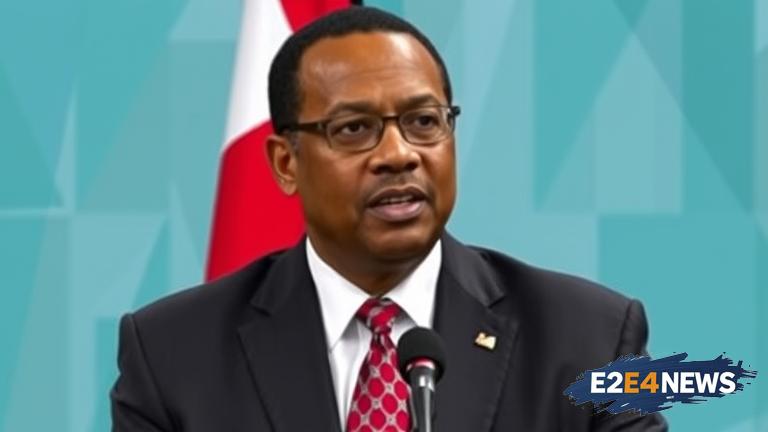The opposition in Trinidad and Tobago has strongly condemned the recent statements made by the Prime Minister regarding the presence of US naval vessels in the Caribbean. The PM’s comments were deemed ‘reckless’ and ‘sinister’ by the opposition, who argued that they could potentially harm the country’s relationships with its regional partners. The US has a long history of maintaining a naval presence in the Caribbean, with the aim of promoting regional security and stability. However, the PM’s statements have sparked concerns among some Caribbean leaders, who fear that the US presence could be used to exert undue influence over the region. The opposition in Trinidad and Tobago has called on the PM to clarify his comments and to provide reassurance that the country’s sovereignty will not be compromised. The controversy surrounding the PM’s statements has highlighted the complex and often sensitive nature of regional politics in the Caribbean. The region is home to a diverse range of countries, each with its own unique history, culture, and political system. As such, any statements or actions that are perceived as threatening the region’s stability or sovereignty are likely to be met with strong opposition. The US naval presence in the Caribbean is just one aspect of the region’s complex security landscape. The region is also home to a number of other external actors, including the UK, France, and China, each of which has its own interests and motivations. The opposition in Trinidad and Tobago has argued that the PM’s statements were not only reckless but also irresponsible, given the potential consequences for the country’s relationships with its regional partners. The controversy has also sparked a wider debate about the role of external actors in the Caribbean and the need for the region to develop its own security capacity. Some have argued that the region should be seeking to develop its own security arrangements, rather than relying on external actors. Others have argued that the presence of external actors is necessary to maintain regional stability and security. The PM’s statements have also been criticized by some of the country’s regional partners, who have expressed concerns about the potential implications for the region. The controversy has highlighted the need for careful diplomacy and communication in the region, in order to avoid misunderstandings and miscommunications. The opposition in Trinidad and Tobago has called on the PM to engage in a more constructive and respectful dialogue with the country’s regional partners, in order to address the concerns and uncertainties that have been raised. The controversy surrounding the PM’s statements is likely to continue to be a major issue in the region, with potentially significant implications for the country’s relationships with its regional partners. The US naval presence in the Caribbean is likely to remain a contentious issue, with some arguing that it is necessary for regional security and others arguing that it is a threat to the region’s sovereignty. The opposition in Trinidad and Tobago has argued that the PM’s statements have damaged the country’s reputation and credibility in the region, and that it will take time and effort to repair the damage. The controversy has also highlighted the need for greater transparency and accountability in the region, in order to ensure that the actions and statements of leaders are subject to scrutiny and debate. The opposition in Trinidad and Tobago has called on the PM to provide more information about the country’s security arrangements and to engage in a more open and honest dialogue with the public. The controversy surrounding the PM’s statements is a reminder of the complex and often challenging nature of regional politics in the Caribbean, and the need for careful diplomacy and communication in order to avoid misunderstandings and miscommunications.
